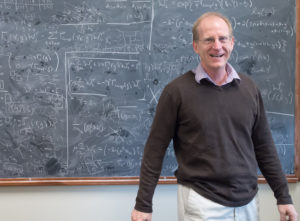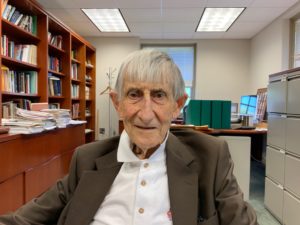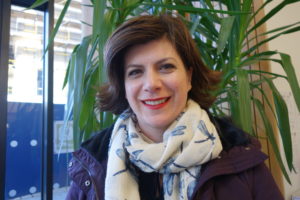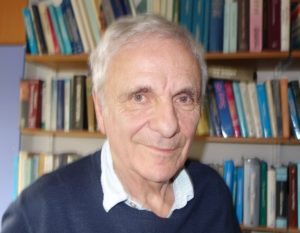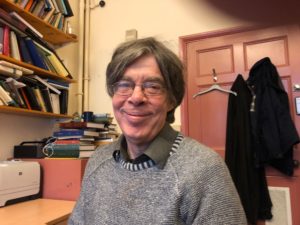Universe Speaks in Numbers
‘The Universe Speaks in Numbers’ – Interview 13
LANCE DIXON
‘The most perfect microscopic structures in the known universe’ – that is the exquisite description of sub-nuclear scattering amplitudes given by theorist Lance Dixon, based at the Stanford Linear Accelerator in California.
‘The Universe Speaks in Numbers’ – Interview 12
ROBBERT DIJKGRAAF
The Dutchman Robbert Dijkgraaf is a rarity – not only is he a top-class mathematical physicist, he is also one of the world’s finest science communicators. In this bracing interview with Graham, Dijkgraaf lucidly describes the state of modern fundamental physics and the continually surprising – and extraordinarily productive – symbiosis between this science and modern mathematics.
‘The Universe Speaks in Numbers’ – Interview 11
GREG MOORE
Physics and mathematics seem to be in ‘pre-established harmony’, a phrase that has long been popular with physicists and mathematicians working at the subjects’ interface. Greg Moore, based at Rutgers University, has discovered many surprising new relationships between quantum field theories and the string framework and concepts in contemporary mathematics.
‘The Universe Speaks in Numbers’ – Interview 10
FREEMAN DYSON
Freeman Dyson talking about his being both a theoretical physicist and a mathematician, the troubled relationship between mathematics and physics in his youth, the impressive physicist he knew (no, it’s not Feynman) and string theory.
The Universe speaks in Princeton and Harvard
Published in North America on 28 May, The Universe Speaks in Numbers was launched twice – at the Institute for Advanced Study, Princeton, and at Harvard University. The two events were quite different but equally successful.

‘The Universe Speaks in Numbers’ – Interview 9
MICHELA MASSIMI
What do philosophers of physics do, and what light might they shed on the work of today’s physicists and astronomers? Michela Massimi, a distinguished philosopher of science at the University of Edinburgh, discusses these and other matters with Graham in this lively interview.
‘The Universe Speaks in Numbers’ – Interview 1 continued
NIMA ARKANI-HAMED
This is the second part of Graham’s interview with Nima Arkani-Hamed, recorded at the Institute for Advanced Study in Princeton. Here, Nima is in brilliant form as he recalls how he fell in love with scattering amplitudes – aptly described by the theoretician Lance Dixon as ‘the most perfect microscopic structures in the known universe.’
‘The Universe Speaks in Numbers’ – Interview 6
MICHAEL GREEN
Michael Green is one of the pioneers of the string framework. In collaboration with the Caltech theorist John Schwarz, he made a crucial breakthrough that led in 1984 to the what became known as the First String Revolution.
‘The Universe Speaks in Numbers’ – Interview 3
SIMON SCHAFFER
Simon Schaffer is not only a leading historian of science but also a great teacher. He is without peer in his ability to illuminate how thinking about thinking about the natural world developed into our modern understanding of physics, often in ways unknown to most physicists today.
‘The Universe Speaks in Numbers’ – Interview 2
MICHAEL ATIYAH
In an interview with Graham last November, Sir Michael Atiyah described how he became a ‘quasi-physicist. Ten weeks later, Atiyah was dead. He was one of the most accomplished mathematicians of the past century: no one had done more in the past decades to discover close links between pure mathematics and fundamental physics. Undoubtedly a great mind, he was also an indomitable spirit.
